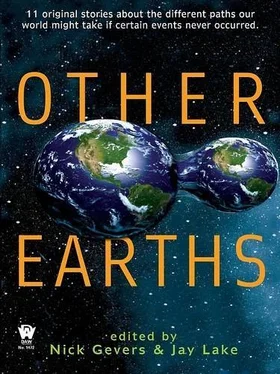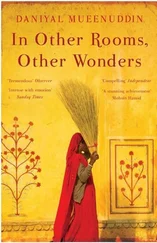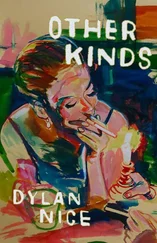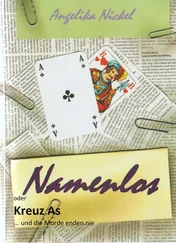Nick Gevers - Other Earths
Здесь есть возможность читать онлайн «Nick Gevers - Other Earths» весь текст электронной книги совершенно бесплатно (целиком полную версию без сокращений). В некоторых случаях можно слушать аудио, скачать через торрент в формате fb2 и присутствует краткое содержание. Жанр: Фантастика и фэнтези, на английском языке. Описание произведения, (предисловие) а так же отзывы посетителей доступны на портале библиотеки ЛибКат.
- Название:Other Earths
- Автор:
- Жанр:
- Год:неизвестен
- ISBN:нет данных
- Рейтинг книги:3 / 5. Голосов: 1
-
Избранное:Добавить в избранное
- Отзывы:
-
Ваша оценка:
- 60
- 1
- 2
- 3
- 4
- 5
Other Earths: краткое содержание, описание и аннотация
Предлагаем к чтению аннотацию, описание, краткое содержание или предисловие (зависит от того, что написал сам автор книги «Other Earths»). Если вы не нашли необходимую информацию о книге — напишите в комментариях, мы постараемся отыскать её.
Other Earths — читать онлайн бесплатно полную книгу (весь текст) целиком
Ниже представлен текст книги, разбитый по страницам. Система сохранения места последней прочитанной страницы, позволяет с удобством читать онлайн бесплатно книгу «Other Earths», без необходимости каждый раз заново искать на чём Вы остановились. Поставьте закладку, и сможете в любой момент перейти на страницу, на которой закончили чтение.
Интервал:
Закладка:
“That evening when I came to him, he packed up his flute first of all. He had seen Bright Sun that winter, when he was a guest in her father’s lodge. And though he scolded me for the precipitateness of my wooing, he was smiling as I was, without any notion or thought that at that moment already Bright Sun’s mother lay dead, as well as four of the old braves who had not ridden with the others, and several children also, because of the savagery of the Sioux chieftain, Goes-to-War, as well as Burgess the American, whom later I shot down.
“By that time it was dark, and Father Mylecraine and I stayed in the mission. Early the next morning we set off, as joyful as you please. Because he was fluent in all the tongues of the Indians, I was eager, with his help, to explain my wife future to her, how she would accompany us to Bellevue and take up residence. Alas, I was full of plans. Before noon we reached the site of the catastrophe. All was in chaos, and I spent more than an hour helping Father Mylecraine attend to the wounded, while at the same time searching for Bright Sun. There were no horses at the village, so I let one eight-year-old boy take the pony I had brought for my bride and her possessions; he started off along the Platte to discover Big Elk’s camp, a distance of a hundred leagues. With the priest’s help, another boy told me what I wanted to know, how he had seen Burgess with his fringed coat and beaver hat—the lion, as he called him, but I knew who he was: a huge man with yellow hair down his back, his yellow beard high on his cheeks—there were not two like him in the territory. Even though she could scarcely walk, he had taken Big Elk’s daughter across his saddlebow and ridden north into the land of the Oglala Sioux. Anyone could see where the war party had passed. Furious, I rode out after them, following the track, even though Mylecraine begged me to wait while we fetched the soldiers from the fort—there was no time for that! Nor could the captain have left St. Jean to intervene in a dispute between the tribes, not with General Jackson massing on the other side of the Missouri; beyond question, it was Burgess’ plan to drive a wedge between the French and the Omahas, to force Captain Ney to choose between disappointing his allies and abandoning his post.
“I followed the trail of the Oglala, two or three score, it seemed to me. But when I came to the side of the ravine, where the track led downhill toward Sarpy’s ford, I saw one horse break away. I was looking for the print of its shoes, a larger horse than any Indian’s, and heavily loaded, and shod in the fashion of the United States’ Cavalry—I knew what I saw. I thought Burgess would try to remove my wife across the river for safekeeping, perhaps because he thought the Sioux would murder her or worse or otherwise do damage to his schemes. Or else he wanted her for himself. In both cases it made me wild with rage. I pressed my mare forward, and as darkness fell I saw a campfire along the ridge, still on this side of the river, for which I thanked God.
“I loaded my long musket and crept up through the juniper trees. The moon was high and small. With as much stealth as I had, I crept up the ravine outside the glow of the fire, by whose flickering light I saw my wife among the stones, her head bowed, her hands tied in front of her as if in prayer. I can tell you, my heart boiled in my chest. Ben Burgess sprawled beside her, a chunk of roasted deer-meat on the end of his knife. He kept no ceremony with her—his collar was undone, his sleeves rolled up. His yellow beard merged with the hair of his fat chest and shoulders—truly, he was hairy as an animal! And he was no bashful or tongue-tied lover, but spoke freely in the language of the Omahas, laughing and muttering as if all this were a joke! He threw down his knife and lifted up instead a cup of whiskey, which I could determine from the smell. He thrust it into my wife’s face. And when she raised her head, and when I saw her expression of despair and passive courage, I thought I could contain myself no longer. I must challenge the lion in his lair, even though I could see Burgess’ pistol laid out on the stones, already cocked and primed. But in my rashness I discovered I had climbed into a trap, because no sooner had I stood up and thrust forward into the circle of the light, no sooner had I uttered my first cry, than one of the cursed Indians, his face still painted like a devil’s, rose from beneath my feet and knocked my gun aside. He was a brave in his first season, younger than myself, bare chested despite the cold, with broken feathers in his hair. Burgess had not risen to his feet, as politeness or prudence would have required. ‘Oho!’ he said, still sprawled next to my wife, ‘we have a guest. But if it isn’t Monsieur Fontenelle!’—he spoke in English. ‘What a surprise! But I suppose you’re a regular tear-cat, now!’
“How can I describe the expression on my wife’s face when she saw me—Bright Sun indeed, but streaked with clouds of anguish and despair. The Indian had his knife at my throat, and he dragged me forward into the firelight. I held out my hand as if to reassure her, but at the same time I saw nothing but blackness ahead of us, as if she and I together had been swallowed up in darkness or the shadow of the pit. I felt darkness overwhelm me, and I raised my hand to push it away, push its shadows from my eyes. The sharp steel was at my throat.
“At that moment, as the darkness threatened to surround me, I heard a noise from away down the hill. I heard a few soft, breathy notes, the low murmur of the black-robe’s wooden flute, an air from his native Brittany …”
I have seen a photograph of Amelie de Fontenelle, taken when she was in her sixties after the end of the Civil War. She is dressed in mourning. Gray ringlets hang down underneath a white lace cap.
No photograph or painted portrait still exists of her brother Lucien. He was a famous trapper and mountain man, who established a trading post at Bellevue, Nebraska, in the eighteen twenties. His wife was an Omaha princess named Bright Sun. His only child, Logan, was the chief who bartered the land of the Omahas to the United States government after small-pox had destroyed the tribes. In 1855 he was scalped and murdered by the Dakota Sioux. His father did not live to see it; Lucien Fontenelle was dead from alcohol, or typhus, or suicide by that time, an ugly man, according to letters and journals of various pioneers, with a face like a monkey.
But what if his mother in Pointe à la Hache had not eaten too heavily one evening when she was pregnant, had not dreamed her monkey dream? What if Madame Mercier had been a different kind of woman, one who had taken to heart, perhaps, the great victory off Malta in 1798, when Horatio Nelson’s flagship had sunk with all hands? She would have been just a girl, impressionable and easily influenced, perhaps, by the celebrations in the streets. Later on, she might have been overjoyed to take into her home her brother’s children after the catastrophe. She might have loaded them with kindness. Stuck in a loveless marriage, she might have felt herself responding to the handsome young Lucien despite the difference in their ages. Generous, open hearted, and näve, perhaps she could not guard her nephew from the maniacal and sadistic Dr. Mercier, who would have driven the boy not just from the city but from the entire territory of New France—up the Mississippi and then east up the Ohio to the Kentucky wilderness. Several years later he might have sent his sister the following letter:
“Ma Chere Soeur, my heart bleeds when I think of you still in the grip of that madman—I do not speak of my aunt. But I must tell you what has happened in case the worst comes to the worst. I lie here wounded, close to death, shot down by Douglas Sharpe and my erstwhile companions …”
Читать дальшеИнтервал:
Закладка:
Похожие книги на «Other Earths»
Представляем Вашему вниманию похожие книги на «Other Earths» списком для выбора. Мы отобрали схожую по названию и смыслу литературу в надежде предоставить читателям больше вариантов отыскать новые, интересные, ещё непрочитанные произведения.
Обсуждение, отзывы о книге «Other Earths» и просто собственные мнения читателей. Оставьте ваши комментарии, напишите, что Вы думаете о произведении, его смысле или главных героях. Укажите что конкретно понравилось, а что нет, и почему Вы так считаете.












